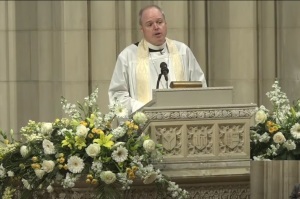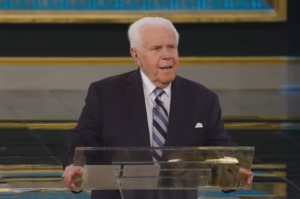Obama vs. Romney: Taxes, Deficits and the Federal Budget
Editor's note: In this series comparing the positions of both major party presidential candidates on a range of issues, each candidates platform will be described using information from the candidate's themselves, mostly from the candidate's websites. A candidate's description of their opponent's position will not be used. In describing the candidate's position, The Christian Post does not attest to the facts stated as part of the position.

Taxes, budgets and deficits have become central issues in the presidential campaign. The national debt is currently above $16 trillion and annual budget deficits have hovered around $1 trillion per year in the last few years. Both candidates, President Barack Obama and Mitt Romney, advocate lowering budget deficits, reforming the tax code and keeping taxes low, but there are some differences as well.
There are two ways to lower deficits: increased revenue or decreased spending. Increased revenue can come from higher taxes or a growing economy. When comparing the two candidates, the short answer is that Obama favors higher taxes and decreased spending and Romney favors decreased spending and a growing economy. The long answer is more complicated.
Before describing each candidate's positions, there are two factors that tend to cause confusion and should be explained.
First, automatic tax increases will go into effect at the beginning of next year. When tax cuts were passed in 2001 and 2003, during the George W. Bush administration, they were not made permanent, but set to expire in 2010. In 2010, Obama and Congress agreed to a two year extension of those tax cuts.
While both candidates claim they want to cut taxes for the middle class, the reality is no one should expect to pay less in taxes under either candidate's plan. Both candidates can claim that their plans cut taxes for certain income groups because taxes will first increase before their plans would become law, but that does not mean that anyone would pay a lower effective tax rate (assuming the same income) they pay today.
Second, the amount paid in taxes is not only dependent upon the tax rates. The amount of money that one pays in federal income tax depends upon both the marginal tax rates and the deductions and credits one claims. Both candidates have talked about reforming the tax code, which would mean getting rid of some deductions and credits.
Government revenue from the federal income tax can, therefore, vary in two ways. Increasing or decreasing marginal tax rates will increase or decrease, respectively, government revenue. Revenue can also be increased by eliminating deductions and credits or decreased by adding more deductions and credits.
Barack Obama
Obama has a plan that he says will reduce deficits by $4 trillion over 10 years (including 2012).
Obama wants to keep the current tax rates where they are for all but the top tax rate. The top tax rate is currently 35 percent, which is paid on taxable income above $388,350 for 2012. When the Bush tax cuts expire, Obama would let that rate return to what it was before the Bush tax cuts, which was 39.6 percent.
Obama also wants to implement the "Buffet rule" and eliminate some deductions and credits for corporations. The "Buffet rule" would institute a minimum tax of 30 percent on income above $1 million.
Obama's campaign website does not specify which corporate deductions and credits he would eliminate, but in stump speeches and the first presidential debate he mentions corporate jets, tax preferences for oil companies and tax breaks for companies that send jobs overseas.
The Obama campaign website says that this combination of tax increases will increase government revenue by $1.91 trillion over 10 years.
Last September, Obama released a jobs plan which claims to reduce future deficits by $4.4 trillion. A 53 page report detailing this plan is available on the White House website. His current campaign plan appears to be roughly based upon that plan.
What, if any, new spending cuts Obama is advocating are difficult to find. A large portion of his $4 trillion deficit reduction plan includes decisions that have already been made by Congress and Obama. It includes $1.78 trillion in spending cuts that were enacted under the Budget Control Act, $850 billion in savings from removing military troops from Iraq and Afghanistan, and $800 billion in lower debt payments.
The rest of the deficit reduction comes from $590 billion less spending on "health and other mandatory initiatives" and $70 billion from "other." The website is not clear on whether the health savings are those that have already been passed as part of the Affordable Care Act. And, it does not specify what belongs in the "other" category.
Mitt Romney
Romney wants to make all the Bush tax cuts permanent as a short term goal. Reforming the tax code is a long term goal. The tax reform would simplify the tax code but not increase tax revenue. He wants to cut all the marginal rates by 20 percent and pay for it by eliminating deductions and credits. He does not specify which deductions and credits should be eliminated but argues that decision should be left to Congress.
Romney also advocates eliminating taxes on capital gains, dividends, and interest for taxpayers who make less than $200,000 per year, and eliminate the estate tax, also called the "death tax."
On corporate taxes, Romney wants to lower the corporate tax rate from 35 percent to 25 percent while eliminating some tax deductions. He does not specify which deductions should be eliminated. In the first presidential debate he claimed that, like his personal income tax plan, this would be revenue neutral.
On spending cuts, Romney wants to cap federal spending at 20 percent of GDP. He would also institute a five percent across-the-board spending cut for all non-security discretionary spending and cap all non-security discretionary spending at below 2008 levels.
Romney also advocates the following specific cuts in spending (the amount Romney claims to save is in parentheses).
- Repeal the Affordable Care Act, or "Obamacare" ($95 billion)
- Privatize Amtrak ($1.6 billion)
- Reduce subsidies for The National Endowments for the Arts and Humanities, The Corporation for Public Broadcasting, and the Legal Services Corporation ($600 million)
- Eliminate Title X family planning funding ($300 million)
- Reduce foreign aid ($100 million)
- Convert some federal programs to block grants for states ($100 billion)
- Reduce waste and fraud ($60 billion)
- Reduce federal employee compensation ($47 billion)
- Repeal the Davis-Bacon Act ($11 billion)
- Reduce the federal workforce by 10 percent via attrition ($4 billion)
These proposals total $319.6 billion.
For the next article in this series, The Christian Post will compare the candidate's positions on the economy and job creation.






























